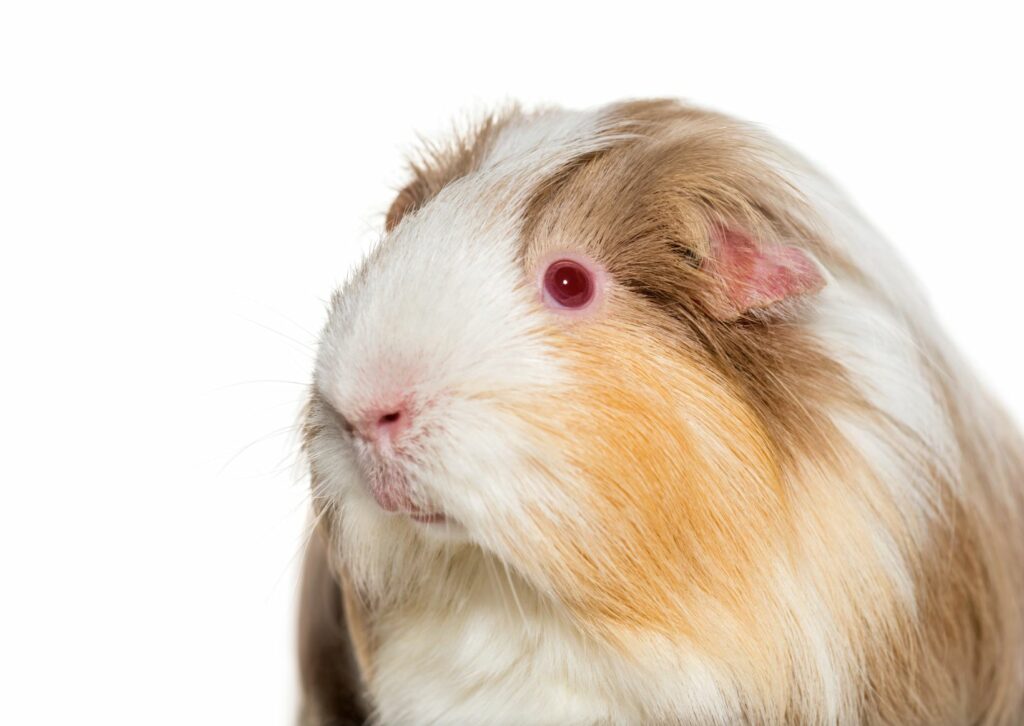Guinea pigs are a popular pet choice for many people due to their cute appearance and friendly nature. These small animals are native to South America and are social creatures that enjoy the company of their owners.
I have seen many pet owners who are concerned about whether their guinea pigs like a quiet environment. In this blog post, I will discuss the nature of guinea pigs, the impact of loud noises on their behavior and health, and strategies for creating a quiet environment for your pet.

Understanding the Nature of Guinea Pigs
Guinea pigs are social animals and require interaction and attention from their owners. They communicate with each other and with humans through vocalizations, body language, and scent marking. Guinea pigs are also sensitive to their environment and can be easily stressed by changes in their surroundings. As a result, it is important to provide them with a safe and comfortable living space.
The Importance of Noise Levels for Guinea Pigs
Noise levels can have a significant impact on guinea pigs. Loud noises can cause stress and anxiety, leading to behavioral changes such as hiding, biting, or becoming aggressive. Guinea pigs are also sensitive to high-frequency sounds that humans cannot hear, such as those emitted by electronic devices.
The Impact of Loud Noises on Guinea Pigs
Loud noises can have a negative impact on guinea pig health. Exposure to loud noises can cause hearing damage, which can lead to a variety of health issues including loss of balance, disorientation, and even seizures. Loud noises can also disrupt a guinea pig’s sleep, which can lead to fatigue and decreased immune function.
How Noise Affects Guinea Pigs’ Behavior and Health
Research has shown that exposure to loud noise can lead to increased stress hormone levels in guinea pigs. This can lead to behavioral changes such as aggression, hiding, or decreased appetite. Prolonged exposure to loud noise can also lead to anxiety and depression, which can negatively impact a guinea pig’s overall health and well-being.
Creating a Quiet Environment for Guinea Pigs
Creating a quiet environment for your guinea pig is essential for their health and happiness. Here are some strategies for reducing noise levels in your home:
The Ideal Sound Level for Guinea Pigs
The ideal sound level for guinea pigs is around 50 decibels, which is approximately the level of a normal conversation. Guinea pigs are sensitive to sudden loud noises, so it is important to avoid sudden loud sounds like slamming doors or shouting.
The Best Location for Guinea Pig Cages
Choosing the right location for your guinea pig’s cage is important for reducing noise levels. Avoid placing the cage in high-traffic areas or near noisy appliances like the television. Instead, place the cage in a quiet room where your guinea pig can rest comfortably.
Noise-Reducing Strategies for Guinea Pig Owners
There are several strategies you can use to reduce noise levels in your home. For example, you can use sound-absorbing materials like curtains and carpets to reduce noise levels. You can also use white noise machines or soothing music to help your guinea pig relax.
Common Noise Sources and Their Effects on Guinea Pigs
Here are some common noise sources that can have an impact on your guinea pig’s comfort:
The Impact of Household Appliances on Guinea Pig Comfort
Household appliances like vacuum cleaners, blenders, and hair dryers can be very loud and stressful for guinea pigs. It is best to use these appliances when your guinea pig is not in the same room, or to use noise-reducing strategies like closing doors and windows.
How Traffic Noise Affects Guinea Pigs
Traffic noise can be very stressful for guinea pigs, especially if their cage is located near a busy road. To reduce the impact of traffic noise, you can use sound-absorbing materials like curtains or place the cage in a quieter location.
The Role of Other Pets in Guinea Pigs’ Comfort
If you have other pets in your home, it is important to consider their impact on your guinea pig’s comfort. Dogs and cats can be very loud and intimidating for guinea pigs, so it is important to supervise interactions between pets and provide a safe space for your guinea pig to retreat to.
Understanding Guinea Pig Vocalizations
Guinea pigs communicate with each other and with humans through a variety of vocalizations. Here are some of the most common guinea pig sounds:
The Different Types of Guinea Pig Sounds
Guinea pigs make a variety of sounds, including chirping, purring, and squeaking. They can also make louder sounds like whistling or screaming if they are feeling threatened or scared.
What Guinea Pig Sounds Mean
Understanding guinea pig sounds can help you better communicate with your pet. For example, chirping or purring sounds generally indicate contentment, while loud screeching or screaming sounds indicate fear or distress.
Conclusion
In conclusion, guinea pigs prefer a quiet environment and are sensitive to loud noises. Exposure to loud noises can have a negative impact on their behavior and health, so it is important to create a quiet and comfortable living space for your pet.
By understanding the nature of guinea pigs, creating a quiet environment, and reducing noise levels in your home, you can help your pet live a happy and healthy life.
- How Long Do American Eskimo Dogs Live? Important Factors and Care Tips - September 29, 2023
- Do American Bulldogs Need Grooming? Essential Tips and Care Guidelines - September 29, 2023
- Do Bengal Cats Enjoy Playing? Essential Tips for Keeping Them Active - September 29, 2023